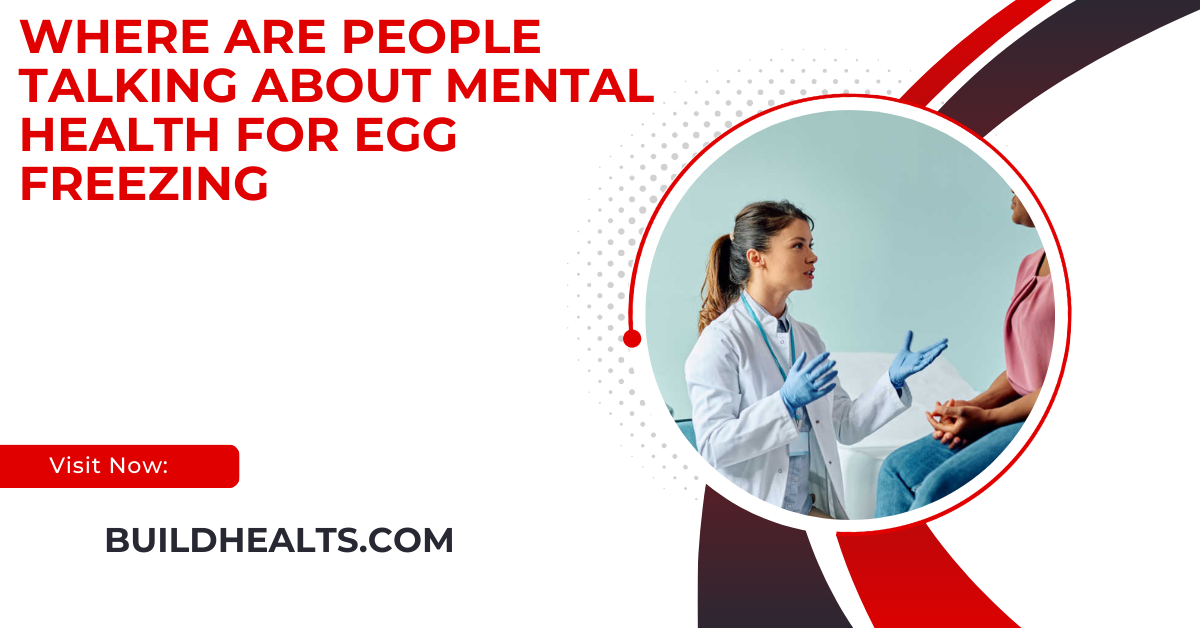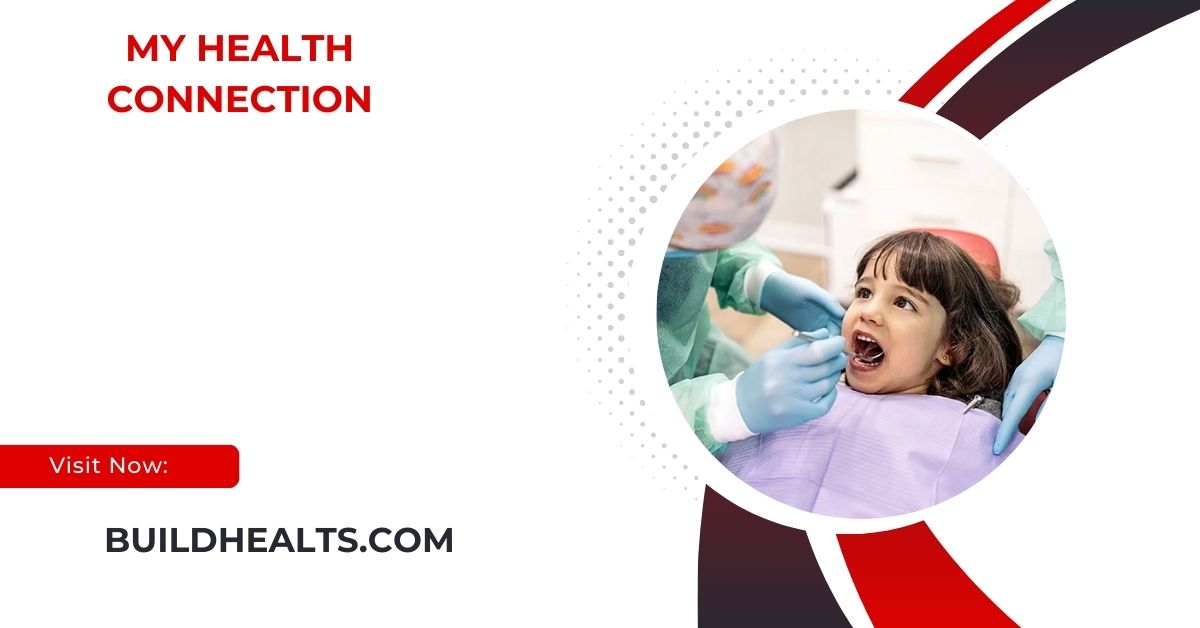Discussions on mental health in egg freezing are active across forums, social media, blogs, and support groups. These focus on emotional challenges and the psychological impact of the process.
Egg freezing has become an increasingly popular option for women who want to preserve their fertility for the future. While it provides a sense of control and peace of mind, it also brings emotional and mental health challenges.
Many women and experts are discussing mental health in the context of egg freezing across various platforms. This article will explore where these conversations are happening and why mental health is an essential aspect of the egg-freezing journey.
The Connection Between Egg Freezing and Mental Health:
Emotional Impact of Egg Freezing:

Egg freezing can be an empowering decision, but it also carries significant emotional weight. The process involves medical procedures, financial considerations, and personal reflection on life plans and choices.
Women may experience a mix of emotions, such as relief, anxiety, excitement, and fear. These complex feelings make mental health an important topic in the discussion around egg freezing.
Why Mental Health Is Important in Egg Freezing:
For many women, the decision to freeze their eggs is not easy. It often involves weighing career ambitions, relationships, and family planning. The pressure to make the “right” decision can lead to stress and anxiety.
That’s why discussions about mental health are becoming more common. They provide support, guidance, and a sense of community for women facing this life-changing decision.
Where Are People Talking About Mental Health for Egg Freezing?
Online Forums and Communities:
One of the most popular places where people are discussing mental health in the context of egg freezing is online forums. Websites like Reddit, BabyCenter, and Mumsnet have dedicated threads where women share their experiences, fears, and emotional struggles related to egg freezing.
These platforms offer anonymity, which encourages open and honest conversations. Women discuss topics like how to cope with the anxiety of waiting for test results, the stress of financial burdens, and the emotional toll of undergoing hormone treatments. Many women also share tips on maintaining mental well-being throughout the process.
Social Media Platforms:
Social media platforms like Instagram and Twitter have become hubs for conversations around mental health and egg freezing. Influencers and regular users alike are sharing their journeys, using hashtags like #EggFreezing and #FertilityJourney to connect with others. They often discuss not just the physical aspects of the process, but also how it has impacted their mental and emotional health.
Some fertility clinics and specialists use these platforms to educate women about the emotional challenges of egg freezing, offering advice on how to manage stress and seek professional help when needed.
Blogs and Personal Stories:
Many women choose to document their egg freezing journeys through personal blogs. These blogs often go beyond the technical aspects of the procedure, delving into the emotional and psychological experiences that come with it.
Bloggers discuss their decision-making processes, the impact on their mental health, and the support systems they’ve built along the way.Reading these personal stories helps others in similar situations feel less isolated, providing comfort and reassurance that their feelings are valid and shared by many.
Support Groups:
Both online and in-person support groups are becoming increasingly popular for women going through egg freezing. Websites like Meetup.com and Facebook groups offer spaces for women to gather, share experiences, and provide emotional support.
In these groups, mental health is often a major topic of discussion. Members share their feelings of uncertainty, fears about the future, and coping mechanisms for dealing with the emotional highs and lows of the process. These groups foster a sense of community, helping women feel less alone in their journey.
Podcasts and Webinars:
Podcasts and webinars dedicated to fertility and egg freezing often include discussions on mental health. Podcasts like “The Egg Whisperer Show” or “Fertility Friday” invite experts to talk about the emotional side of fertility treatments, including egg freezing.
Webinars hosted by fertility clinics also address the psychological aspects of egg freezing, offering tips on how to handle stress, anxiety, and uncertainty. These resources are valuable for women who may not feel comfortable discussing their feelings openly but still want access to professional advice.
Also Read: Magnesium Welding Rods Health Hazards List – Key Health Hazards and Safety Tips!
Fertility Clinics and Counseling Services:
Many fertility clinics now offer mental health counseling as part of their services. The process of egg freezing can be emotionally draining, and clinics recognize the importance of supporting women’s mental well-being.
Counseling services are available to help women manage the emotional challenges they may face before, during, and after the egg freezing process. These services include one-on-one therapy, group counseling sessions, and workshops focused on mental health and fertility.
Articles and Research Publicati:ons:
Mental health and egg freezing are also being discussed in research publications and online articles. Websites like Healthline, Psychology Today, and Scientific American publish articles that explore the psychological effects of fertility treatments, including egg freezing.
These publications often feature insights from mental health professionals, who offer strategies for coping with the emotional complexities of egg freezing.
Common Mental Health Challenges in Egg Freezing:
- Stress and Anxiety: One of the most common mental health challenges associated with egg freezing is stress. Women may feel anxious about the success of the procedure, the financial costs, and the uncertainty of the future. Stress can be exacerbated by the medical aspects of egg freezing, such as hormone injections and the egg retrieval process.
- Fear of Failure: The fear that the procedure may not work can cause emotional distress. Even though egg freezing offers hope, there is no guarantee of success. The thought of undergoing such an invasive and expensive process without a guaranteed outcome can lead to fear and anxiety.
- Emotional Rollercoaster: Hormonal treatments can cause mood swings and emotional instability. Women often report feeling emotionally sensitive, overwhelmed, or even depressed during the egg freezing process. These mood changes can be challenging to manage without proper emotional support.
- Decision-Making Pressure: The pressure to make the right decision about egg freezing can lead to mental strain. Women often wrestle with questions about timing, career, relationships, and family planning. The weight of making such a life-altering choice can take a toll on their mental well-being.
How to Support Mental Health During Egg Freezing:
Seek Professional Counseling:
One of the best ways to support mental health during egg freezing is to seek professional counseling. Therapists who specialize in fertility issues can help women navigate the emotional complexities of the process, offering coping strategies and emotional support.
Build a Support Network:

Having a strong support network is essential for maintaining mental well-being. Women going through egg freezing should reach out to friends, family, or support groups for emotional support. Sharing experiences with others who understand the process can make a significant difference in managing stress and anxiety.
Practice Mindfulness and Stress Management:
Mindfulness practices like meditation, yoga, and deep breathing can help women manage stress during the egg freezing process. These techniques promote relaxation and provide a sense of control during a time of uncertainty.
Set Realistic Expectations:
It’s important to set realistic expectations about egg freezing. While the procedure offers hope, it’s not a guaranteed solution. Understanding the risks and managing expectations can help reduce feelings of disappointment or failure if the outcome is not as expected.
FAQ’s
1. Why is mental health important in egg freezing?
Mental health is crucial because the egg-freezing process involves emotional, financial, and medical challenges, which can lead to stress, anxiety, and uncertainty.
2. Where can I find discussions about mental health and egg freezing?
Discussions can be found on platforms like Reddit, Instagram, personal blogs, support groups, and fertility podcasts, where women share their experiences.
3. What are common mental health challenges during egg freezing?
Common challenges include stress, fear of failure, mood swings from hormone treatments, and the pressure of making the right decision.
4. How can I manage mental health during egg freezing?
Seeking counseling, building a support network, and practicing mindfulness techniques like meditation can help manage stress and anxiety.
5. Do fertility clinics offer mental health support during egg freezing?
Yes, many fertility clinics provide mental health counseling services to help women cope with the emotional aspects of the egg-freezing journey.
Conclusion
In conclusion, mental health discussions around egg freezing are growing on forums, social media, and support groups. Women share emotional challenges and seek support for the psychological impact. Managing mental health is essential during this complex process.
.




